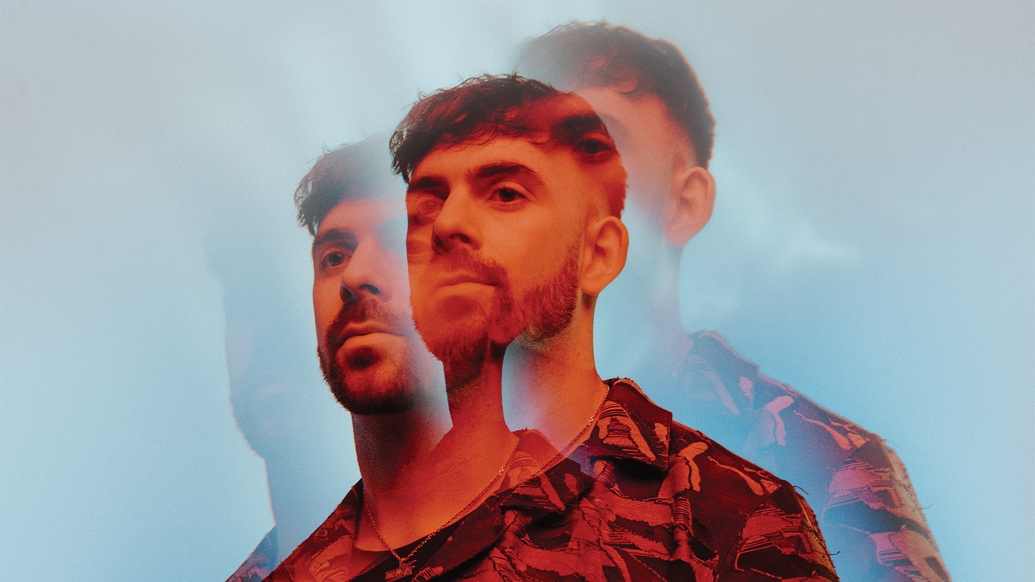
Patrick Topping: northern powerhouse
2022 was a massive year for Patrick Topping. Alongside global shows and a prolific run of releases, his Trick label hosted a hugely successful debut DC-10 Ibiza residency over the summer. Here, he chats to Harold Heath about his road to success, sobriety, his DJ Mag Best of British Best DJ award win, and more️
It’s 2013, a Saturday night in a bar in Stoke-on-Trent. There's a rudimentary soundsystem and a set of decks, next to which is one of those arcade punch machines. It’s a rough ‘n’ ready setup; the place is full of shirted lads, one of whom later that evening will nick the DJ’s taxi money straight out of his hand.
It’s the DJ’s first professional paying gig, the kind of low-level party that is the making of a DJ, the kind that all DJs on their way up have experienced. “And at the time it was class!” enthuses an animated Patrick Topping. “That was on the Saturday and Paradise at DC-10 used to be on a Tuesday which Jamie [Jones] had booked me for, so I went from my first paying gig in Stoke to DC-10 on the Tuesday.” And so began Patrick Topping’s professional DJ career.
Speaking with DJ Mag nearly a decade later, Patrick Topping has different issues to deal with than low-level street crime or competing with arcade games. His Trick label just spent the summer absolutely smashing up its first DC-10 residency, while continuing to pump out shimmering club tools in all sorts of 4/4 flavours from artists including Rawfox, Ose, Josh Micky, Gary Beck, Airwolf Paradise and Mr. Topping himself.
The label boss, meanwhile, has spent much of the last year flying between DJ gigs in Australia, the US and Europe. The current question on his mind is how is he possibly going to top this year? ”I’m very lucky the way my career seems to have progressed,” he tells us, sounding genuinely surprised at how things have turned out for him. “I say each year, there’s no way it can be topped, like, this is the pinnacle — and then somehow every year is better than the last.”
Certainly, Topping has moved on from that first DC-10 gig back in 2013, when, as he recalls with a smirk, his best mate at the time was in the DJ booth with him, fell into the decks, turned the music off, smashed a bottle of vodka and got them thrown out, before apparently having a go at someone high up in the local constabulary. “I was thinking I’ve completely fucked it,” he tells us, “Jamie’s never gonna have us back here.” Assuming his career was over literally the night it started as the promoter shouted in his face, it turned out that “Jamie wasn’t even bothered about it and invited us back to his after-party!”
We meet Topping in a slick London hotel where he’s staying, having just flown down from Newcastle for the DJ Mag photo shoot in the morning. He’s warm, enthusiastic and fired up. In fact, to use a couple of terms that will appear extensively over the course of the interview, Topping is mint, buzzin’ like. He’s looking mint, buzzin’ like too: cheery, relaxed, dressed in all-black sweats, genuinely looking like one of those people you describe as glowing with health.

“Well, I’m like really, really happy about winning the Best DJ award, really buzzing... It’s just the perfect way to round off the year, it’s been incredible this year and then to be awarded that — the title just doesn’t seem real.”
All DJs need an origin story and his DC-10 tale is a good one, but Jamie Jones didn’t just pick Topping out of thin air. There was a long journey that led up to that moment, and to understand that journey you need to understand Patrick Topping’s background. “I’m really proud of my working-class upbringing and where I’m from,” he tells us. “My parents are two of the most working-class people you could meet: my Dad’s last job was as a doorman, before that he ran a security company, before that he was really high in North Tyneside Council.”
Both parents were active, working-class socialists, committed to egalitarianism, raising Topping with a sense of fairness, a hearty work ethic and the drive to succeed. The first generation of his family to go to university, Topping found the rigours of academia challenging and he had to further develop that work ethic in order to succeed. “I’ve always been a determined person, and when it came to my studies when I was at uni, that wasn’t natural to me; I was having to be in the library every single day, grafting for it, and I think that’s where my work ethic for learning production came from."
His parents’ unrelenting support of his academic endeavours paradoxically helped him decide on the direction he wanted to take in life: “In a weird way I think going to university is actually what made me a DJ... my parents were like, ‘Go to uni and you’ll find what you want to do there’, and it was while I was there that I realised what I really wanted to do — so I’m really thankful for them for being supportive.” And what he really wanted to do was inspired by clubbing on a holiday with then-girlfriend, now-wife Hayley to Ibiza: “Yeah, it was a trip to Ibiza when I was 18 that made me want to become a DJ. I was like, ‘I can’t afford to come back here every year’, it was so expensive. And the only way I could do it was to be a DJ. That was literally my train of thought, and now it’s happened.”
That’s how dreams can come true — just like that. Your passion for music is so strong that you want to be more than just a clubber, so you create a goal, work towards it, and then one day you get the call from Jamie Jones and a few years later your label is hosting DC-10 all summer. Just like that. OK, so there is one more element in all this, and that’s Topping’s single-minded drive. He is very much a man who simply doesn’t appear able to stop, and acknowledges he’s prone to overworking. “During lockdown I reckon I burnt myself out like five times,” he recalls, “and my team were like, ‘You’re not even travelling anywhere!’ But it’s a state of mind of getting up in the morning and being dialled into working until you fall asleep. But it’s not healthy all the time when you’re so passionately working on different projects.”
Luckily he has his wife Hayley and his team to keep an eye on him and reign him in when necessary, but Topping’s career arc is a clear illustration that hard work really does pay off. His creative engine is fuelled by pure, distilled willpower and when we ask where this drive comes from, he tells us it flows from a source every DJ Mag reader will instantly identify with: “It’s just about passion for the music.”
A producer who utterly nailed that early 2010s tech-house sound and who’s since taken his own and his label’s sound into a much wider palette of 4/4 sub-genres, Topping has had extensive, in-depth musical training, starting with a few childhood piano lessons and then much later, a four week (yep, FOUR WEEK!) Point Blank minimal techno course. (His verdict on the course? “It was mint, like!”). He started out making tunes built around big, riffy basslines, assembling a series of edgy, precision-tooled and above all effective tech- house tracks. His first releases were in 2013, the Hot Trax EP ‘Walk On’ and the ‘Any Amounts’ EP on Hot Creations, both constructed of concrete-heavy, razor-edged beats, rumbling tech-house b-lines and bags of swagger.

Through his near-decade in the biz, Topping has broadened his musical output, producing way more than the tech-house that made him famous. Over just the last couple of years, he’s served up eye- moistening emotive house like ‘Keep On Moving’, chunky party jams like his ‘Shake My Booty’, an electro-house flavoured remix of The Streets, his Italo-ish ‘Disco Hits’ featuring Hayley Topping, the driving synthno remix of ‘Heart Attack’ from BRONSON featuring lau.ra, and a cold, hard techno remix of Adaptor’s ‘Skate Dancer’, as well as the deep techno collab with Kevin Saunderson, ‘Frisk’, and his buoyant, crisp, house groove ‘Turbo Time’ on Defected. Topping is still a tech-house producer, but he’s clearly become much more than that too.
The broadening of influences, this new musical confidence, has come partly from experience, but also from a couple of other sources. Topping has recently revived the piano lessons he started as a kid, and in 2020 began to work with a mix engineer for the first time. And while he’s clear that both strategies have really helped improve his music — “It’s really elevated it” — they have also made him re-evaluate his older releases, with the perfectionist in him really wanting to remaster it all to his current standards. “I feel like my music now is like the Old and New Testament, because I started the piano at the same time as I started working with a mix engineer, and now I can really tell the difference between my old and new stuff,” he tells DJ Mag.
The urge to rework all his tracks has been dampened by the enormity of the task, because the files will be on different computers and drives, and as he says, “then you need to pull all the stems out and it’s always a laborious task to get the song mixed because you have to check to make sure everything’s right”.
Topping has way too much enthusiasm for making new music at the moment, preferring to use his studio time for fresh projects. There’s a clear sense that as much as he wants to polish up his older music, he won’t, because he can’t devote the time required to do it as well as he possibly can. Because Patrick Topping does the things he does as well as he can, or not at all — there’s no half-measures. Focused; driven; a perfectionist.
He applies the same level of attention to detail to his label Trick as he does to all aspects of his work, and still seems almost pleasantly surprised at the results. “When I started Trick,” he tells us, “I did have quite high hopes, but even then it has eclipsed what I thought it would do.” As someone who started going out to the island every year from when he was 18, sometimes twice a summer, Trick landing a summer residency at Ibiza’s legendary DC-10 was definitely something of a career-high. “It’s been like a big part in shaping who I am and became a massive goal of mine,” he tells us, gently shaking his head as though he still can’t believe the way things have turned out, “so playing there has been really, really special.”
Throughout last summer, DJs including Heidi, Lauren Lo Sung, Alan Fitzpatrick, Chez Damier, Kevin Saunderson and Skream made the journey to DC-10 to join Topping at Trick. The closing party at the end of August featured DJ Minx, Dense & Pika, Ewan McVicar, Joris Voorn, Krystal Klear and Nora En Pure alongside Topping. We wonder what it’s like behind the decks at DC-10, at peak time, at the final party of the year, placing a small bet with ourselves as to what his answer will be. We win the bet: “Aww, it’s just mint. It’s a buzz, man!”
As ever, Topping is looking to the future, and with plans to take Trick to new territories in the States, Italy and Tenerife in 2023, he’ll no doubt be attempting to repeat this year’s successes, or more likely aiming to somehow beat them. Like his productions, Topping’s DJing has morphed and developed over time as well. He initially built his name showcasing the highly polished percussion loops and big room b-lines of mainroom tech-house, but over the years has developed a more expansive sound, stretching out into playing other genres and tempos, and Trick has allowed him to play as freely as he wants.
“As a DJ, you have to adapt to where you are at different parties, so you’re not gonna turn up to Cocoon and play a disco set... but when you’ve got your own night, it’s a release and you can really just do what you wanna do — and that really came out in my DJing. So whether I’m playing at Trick or away from Trick, I think my DJing has kind of evolved because of that freedom I’ve been allowed there.”

“There’s a lot of events that just do play tech-house only — and that’s cool — but I try and make Trick not like that and my own DJ sets not like that too. At Trick you can hear tech-house, techno, house, hard house, hard techno, trance and electro.”
It’s a freedom that has seen Topping break out of the 125BPM furrow that many Ibiza big rooms have got stuck in over the years, merrily zipping around some much higher tempos, re-connecting with his North-East mákina roots. Mákina? Yes, mákina, the Spanish variation of hardcore techno that clocks in somewhere between 150 and 190BPM. With MCs; that mákina. If you’ve not heard of it then you’re probably not from either Scotland or the north of England — or for that matter Valencia in Spain, where mákina originated. Topping fills us in on the mákina facts: “It’s sometimes described as Spanish techno but it’s closer to happy hardcore, or closer to gabba but not as abrasive... In the North East, it’s its own beast, and it’s actually bigger there than in Valencia where it started in the ‘90s. We used to call mákina ‘New Monkey’ because it was named after a Sunderland club called the New Monkey Club.”
Although Topping stepped into the tech-house tradition, he wasn’t particularly influenced by the London ‘90s tech-house nexus of The End, Wiggle, Swag Records and so on, or by the various US house B-sides, stripped-back house dubs and pitched-down techno that fed into the early tech- house scene. “Mákina is what I grew up on and it’s what a lot of the North-East are still listening to. I think that’s why in my set I quite like dropping in hard house stuff, Tidy Trax, older Dutch stuff, rave things, or maybe even a trance track.”
He’s not an open-format DJ by any means and his productions, DJing and label are all still very much grounded in house, techno and indeed tech- house, but playing at Trick and following his own instincts and influences has led him to open up his sound, and to play with the tempo of his DJ sets — something the Trick crowd have been enthusiastic about.
“I think the crowd at Trick are quite open- minded and receptive. I don’t think they expect it to be all one genre, or even one sub-genre all night... I used to play very linearly, sticking to the same BPM, and now it’s more just like a rollercoaster going up and down. I still love tech-house and I’ll still play tech-house, it’s just I don’t like it when people think that’s all I play. There’s a lot of events that just do play tech-house only — and that’s cool — but I try and make Trick not like that and my own DJ sets not like that too. At Trick you can hear tech- house, techno, house, hard house, hard techno, trance and electro.”
His love of mákina may have driven him to drop some super-fast-tempo tracks from time to time, but Topping also feels that this is a part of a larger trend of clubbers, DJs and club brands embracing a wider tempo range in their nights. “I feel the BPMs in the UK have got faster; there’s this massive hard techno scene which is huge now, stuff like [Manchester party] Teletech where you’ve got DJs there banging out 150/160-tempo techno. I’ve started to play some of that stuff in my sets too and I think because there are various scenes that are pushing higher BPMs, people are more open to me dropping màkina — even though they might not know what it is.”
This musical openness has also been reflected in the output of the Trick label, as well as the music at Trick events. With over 50 releases to date, this year Trick has released all sorts of flavours of 4/4 club tunes. Rawfox’s ‘Hit’ EP served up sharp- edged wonky party house, while Josh Micky’s ‘Enigmatic Energy’ EP favoured Italo-tinged tech epics. Gary Beck’s ‘I Like It’ EP and Christian Smith’s ‘Infatuate’ delivered straight-up killer big- room techno, Airwolf Paradise’s ‘Don’t Hurt Me Baby’ was a buoyant, accessible housey anthem-in- waiting, while Dense & Pika’s ‘U, My’ was tripped- out leftfield bass house. There will be plenty of new Trick material available next year too, as Topping is planning to up his label release schedule to one a week.
In terms of career success, Topping has maintained a pretty steady upwards trajectory for the best part of a decade, but inevitably he’s faced challenges too. When we first meet at the hotel, he turns down the offer of an alcoholic drink in favour of water, and at the time of the interview he’s 98 days sober. “I’m not an addict, and have never been an addict or anything like that,” he tells DJ Mag, “but I’ve very much indulged in the party side of this scene... I was living a really unhealthy lifestyle, giving it the big one for four years. 2013 to 2017 was an unhealthy blur. I would come in from a gig and I would just run upstairs to be sick, then I’d just be a cabbage, eating takeaways for days on end. It was never anything chronically bad, just what you’d imagine a young lad who was into that scene would do when they suddenly become a DJ.”

When some of his gigs began to be less fun, he took a look at what was going on with himself and then — in a very Patrick Topping way — approached sobriety with the same degree of commitment and drive that he does every other thing. In what was an extremely on-brand response from Topping, he chose to quit while he was ahead, taking control of the more indulgent aspects of his personality before they became problematic.
“It was putting a bit of a dampener on playing,” he says. “I wasn’t looking forward to every gig, and some of the gigs were spoilt. Like, I remember playing in Space, and being paranoid on the Terrace, feeling sick from being like this and thinking ‘This is horrible’. I thought, ‘I’ve got all these opportunities and some of the times I’m not enjoying it, and that’s not why I got into this’. Fundamentally, I got into it for the music.”
There it is again, the simple truth that lies at the heart of who Patrick Topping is; he’s just like the rest of us, he just really loves his music, and that simple truth drove his decision to change his lifestyle. The world of the professional DJ offers all the many temptations you might imagine, and it’s no surprise that many artists and DJs use alcohol and substances to help keep them focused, keep them going, get them into the same headspace as their audience, cope with stress or for many other reasons. And as we all know, culturally, nightclubs and festivals are generally more accepting of substance use than most other workplaces too. So switching to working sober was a tough move for Topping, one that took all his not-inconsiderable willpower.
“All my confidence as a DJ was from being intoxicated,” he continues. “So suddenly it was like, ‘I have to do my first radio performance sober’, and it’s like a brand-new thing, or my first daylight gig or my first gig where people are right up close.” He recalls the nervousness of all these hurdles with the same enthusiasm and glee with which he talks about his successes, getting as wrapped up in the story of facing the DJing world sober as he does in retelling his tales of success and indeed excess: “So you’re trying to get through all these different firsts, and confidence comes from that experience. You just have to force yourself through, but it was hard. I remember doing Awakenings sober and it was the first time ever that my hands were trembling on the decks. So it wasn’t all plain sailing, it took a lot of determination and willpower, but then after a while it just becomes second nature. And now I prefer to play sober.”
Again, it’s as simple as that. You achieve your dream, then a few years in you begin to notice that substances are taking a toll, so you decide to stop them, and then you successfully stop them. Topping seems to have little insight into just how impressive his ability to simply make things happen is; for him, life is straightforward, a series of causes and effects: he makes a decision and then sees it through. Deciding to become sober was just another decision that, once taken, became a thing that would inevitably happen, as soon as he put the work in. And again, it’s all tied up with his passion for music, clubbing, raving and DJing.
Topping tells us that many people fall into their careers, but for him, ever since attending his first DJ gig when he was 17, DJing was a goal, and becoming a DJ was a conscious decision. “I really wanted this to be a career,” he says, “because...” Words very briefly fail him before he plaintively informs us: “Because — it’s the music.” It was the love of the music that drove him to become sober, and reflecting on that decision he tells us: “It’s basically about self-preservation, to keep this career that I love. I don’t want to fuck it up. I’m just so passionate about it, so grateful to be doing what I’m doing that I didn’t want to squander it.”
The best thing about it all has been seeing the results. He is, again, super-enthusiastic about his new sober approach. “It’s been the best thing I’ve ever done,” he tells us. “It’s flipped my career and really helped me make strides on the business side too. Because I had more time to start the label, start the event, put more time into organising my career, into social media, more time into finding music and making music... There was never such a thing as one drink, but now I know I’ve got a handle on it. Now I can turn it on and off, I can take it or leave it—andI nearly always leave it.”

"I feel so grateful and lucky to have had this career. You get caught up in it and it becomes normal but I do have these, like, pinch myself moments still, where I get blown away by it."
Topping has always been into sport, fitness, diet and health, telling us: “I like the gym and running but I don’t do any sport anymore. I stopped playing football the day I got booked for DC-10 because I didn’t want to get injured,” which is, again, a very on- brand Topping anecdote: he’s always focused on the goal (ironically in this case). He’s into eating well, the health benefits of sunlight, cold water immersion, heat exposure, different types of training; health and well-being really are his thing, and his new sober outlook has perhaps inevitably caused him to reflect on the nature of nightclubs and festivals.
“I sometimes wonder that our scene is handicapping itself because people are dismissing it — because they think you have to do it in an unhealthy way,” he says. “But it doesn’t have to be, there doesn’t have to be an after-party every week, every single time you go out... I think a lot of people think that you have to get off your head or get full of drink to go to this thing, and you don’t have to do that... I’m not saying I’m against it or don’t do it anymore, but I’m just saying give being sober at a party a chance if you’ve never done it: I’ve had some mint sober experiences, and DJing is better now I’m sober too.”
Aside from his dedication, what really stands out is Patrick Topping’s near-boundless enthusiasm. Over an hour into our chat and everything is still ‘buzzin’’ and ‘mint’ and he’s genuinely enthused about his music, about DJing, about the clubbers he plays to, his label, his touring schedule, all of it. For Patrick Topping, every day is just heads-down, full-on, working it, getting everything associated with his name as near to perfect as he can, while rinsing out every possible moment of enjoyment from every DJ gig, getting those endorphins, the adrenaline, serotonin, dopamine, all that good stuff, chasing the high you only get from doing something as well as you can. He’s chasing that rush all the time; no wonder he’s so positive. DJ Mag asks him how he feels about winning Best DJ at our Best Of British awards and unsurprisingly, Topping’s feeling pretty good about that as well. “Well, I’m like really, really happy about it, really buzzing... It’s just the perfect way to round off the year, it’s been incredible this year and then to be awarded that — the title just doesn’t seem real.”
It’s been quite the journey from that first paid gig in Stoke to where he is today, and we wonder what he felt about his near-decade working as a pro DJ and producer. Topping tells us that when he was still a raver rather than an international DJ, he went to hear one of his very favourite DJs, Luciano, in 2009 at Cocoon In The Park, and in a nice bit of serendipitous historical bookending has just returned from playing for him.
“I’ve actually just come back from my last gig which was playing for Luciano, two days ago in Chile, at his festival in his hometown in Santiago: and it was unbelievable. When he asked us to do that, I can say that 2009 me would never have believed it — that was perfect man, just amazing. “I feel so proud of it all,” he continues, “and I feel so grateful and lucky to have had this career. You get caught up in it and it becomes normal but I do have these, like, pinch myself moments still, where I get blown away by it. That’s also why I like to be sober, so I can enjoy it. I step back from it and it literally just makes me so happy.”
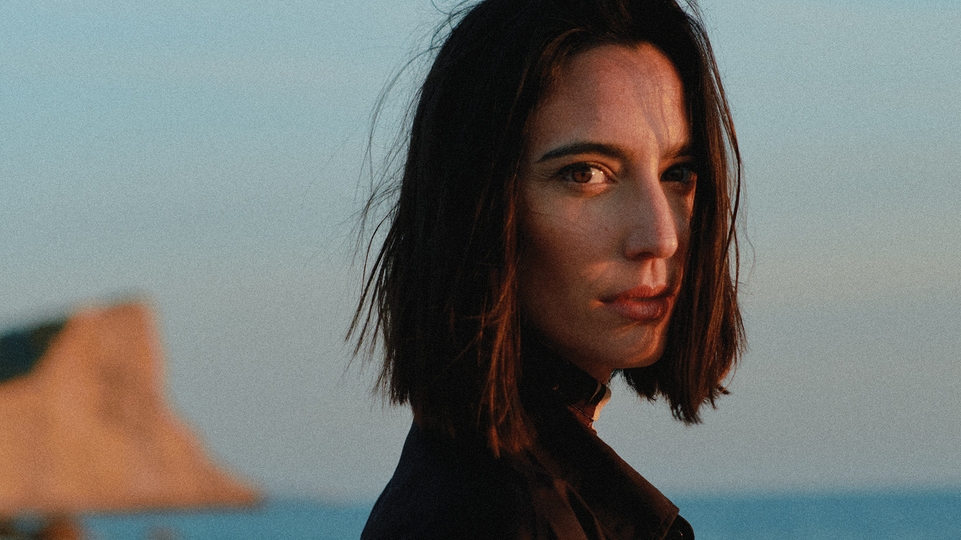
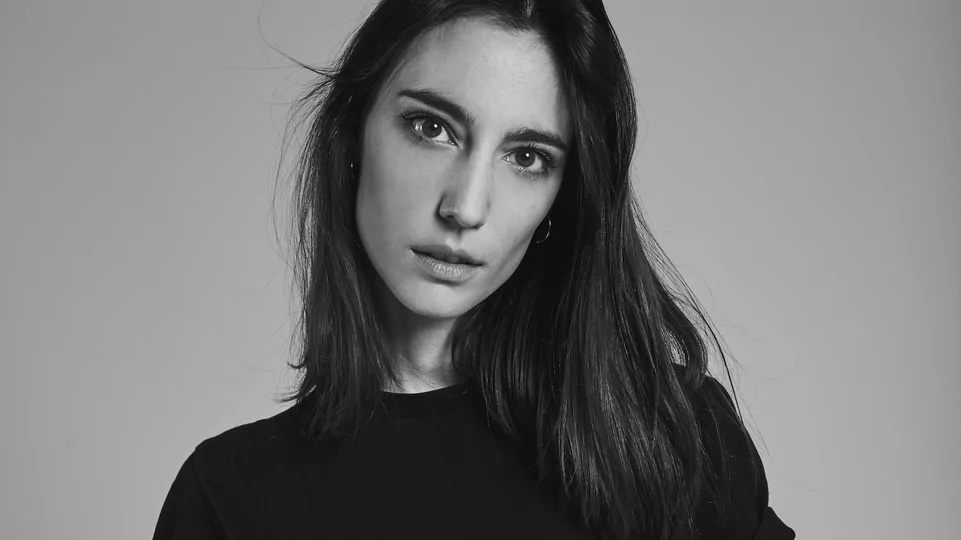
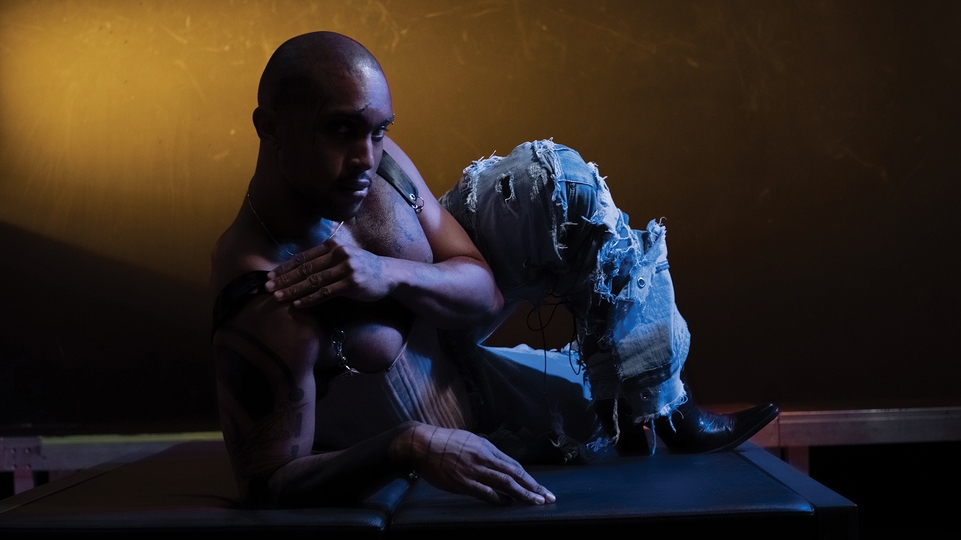

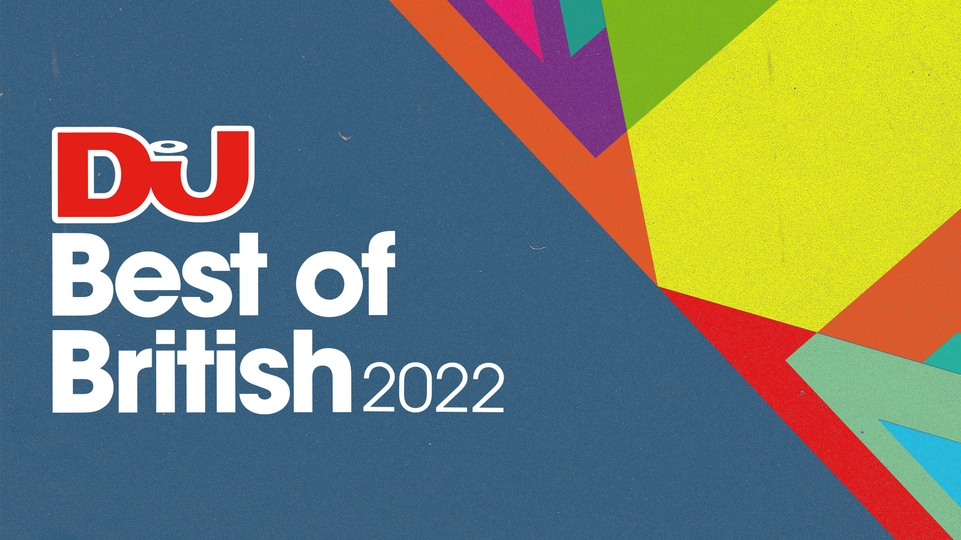
.jpg?itok=xp0UOzNo)